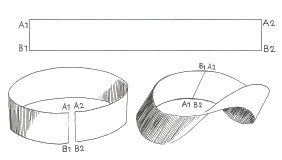The Falkland Islands are the centre of a new conflict. In fact, they are the centre of what seems to be a never ending dispute between Argentina and the United Kingdom: the mobius Falklands' strip. But what is exactly the nature of the Falkland Islands’ issue? Or rather, why is this particular conflict destined to remain stagnant in a juridical and political limbo?
A brief historical chronology and some data help us in clearing the path. There are several differences in regard to the first point, the historical chronology. To prove it, apart from a more than vast literature on both sides of the Atlantic, we can just look at the discrepancies between the official websites of the Foreign Ministry of Argentina and the Falkland Islands government. In principle, we can agree on the fact that someone first sighted the islands and finally arrived (Magellan and/or Vespuccio or the English Captain Davies) in the 1500s. British Settlements appear afterwards. Argentina declares its independence from Spain (1816) and claims the islands based, among other things, on the fact that they were originally part of the former colonial empire (1829). The United Kingdom and Argentina have had since then continued presence and/or claimed exclusive sovereignty over the islands both bilaterally and internationally with climax in the 1982 with the war. According to the 2012 census the islands have 2841 inhabitants. Most of them (59%) considered themselves "Falkland Islanders" and a large percentage identified as British (29%). Bilateral relations have been restored after the war. Trade and other activities between the islands and Argentina have been a problem. Due to the lack of negotiations, Argentina has threatened with an economic blockade, an idea supported by other Latin American countries, with visible negative effects for the islanders. Meanwhile, the United Kingdom has made clear they will defend, if necessary, the islanders.
In general terms, Falklands represents a sovereignty conflict. A sovereignty conflict is one in which we discuss the distribution of sovereignty over a non sovereign territory. As in any other conflicting interests’ situation, this one also implies a difference. The main reason for the lack of solution in the Falklands case is that the conflicting interests are governmental, political only, non state’s ones. The cause or the means used and that have been used by successive governments both in Argentina and the United Kingdom is Falklands’ just acquisition. In other words, both the government of Argentina and the United Kingdom maintain that it is just to grant the exclusive sovereignty over the Falkland Islands based on various circumstances they use to prove their "better" right over the islands.
So far, we have seen the background elements that give flesh to the mobius Falklands' strip. The key point in which a simple international situation changes into mobius is the just acquisition. Next Thursday we will focus on deconstructing the strip: what is really hidden behind both the approaches of the governments of Argentina and the United Kingdom that does not let the conflict be solved.

The Falkland Islanders will decide on their own future on 10-11th March, 2013 in a referendum in which the they will answer Yes or No to the following question:
ReplyDelete"Do you wish the Falkland Islands to retain their current political status as an Overseas Territory of the United Kingdom?"
Let's see people go public and trash the democratic will of the people after that. Who will take them seriously? I like Sean Penn. He's a talented actor/director. Perhaps he's just a bit thick? It doesn't take a genius to pick apart his position and that of other grandstanders. Argentina's economy is in trouble and its government seeks to bolster its faint electoral chances so they start bleating about 'Las Malvinas' again.
Here is an excellent article that shows how silly such claims are and hypocrisy behind them:
http://www.thisisadnauseam.com/index.php/Global/california-dreaming-by-richard-fountain
If Argentina insists on 'having a go', well, they know the inevitable result. It would do better to address the grievances of millions of indigenous tribal people whose descendents originally occupied the land now called Argentina for many centuries prior to the arrival of the Spanish conquistadors who proceeded to beat them up, enslaving many whilst killing huge numbers and banishing the rest to the periphery.
Of note also is that whilst independence from Spain was originally declared on 9th July 1816, following the war of independence, civil war and strife Buenos Aires finally rejoined the Argentine Confederation, and Bartolomé Mitre was elected the first president of the unified country in 1862.
A similar tale relates to most of South America. It has nothing to teach the world about democracy and human rights. Whilst I support the fact that countries gained their independence, they have yet to really address issues much closer to home and that are perhaps a little too awkward for them still. They'll have to do so one day though. Perhaps in future when they become more mature nations.
BBC - Q&A: Falkland islanders referendum
http://www.bbc.co.uk/news/uk-21350571